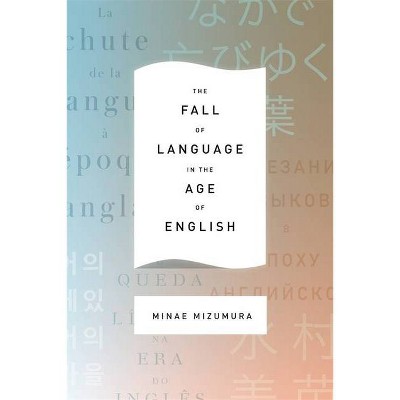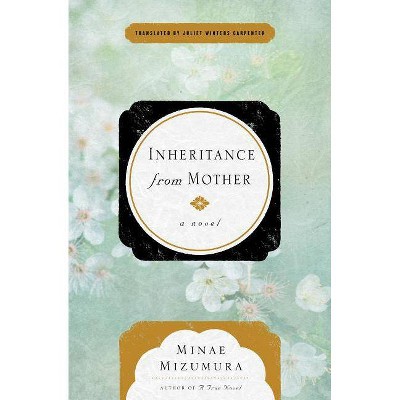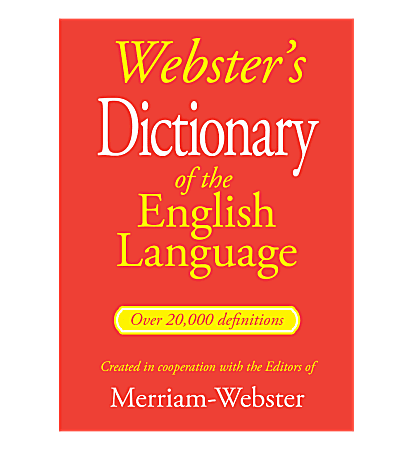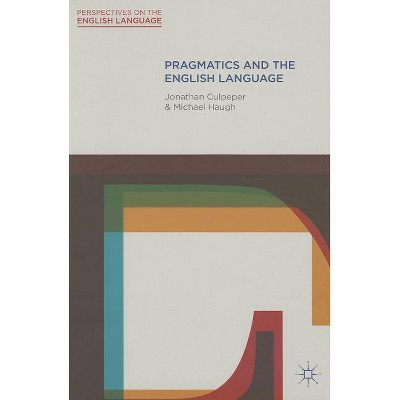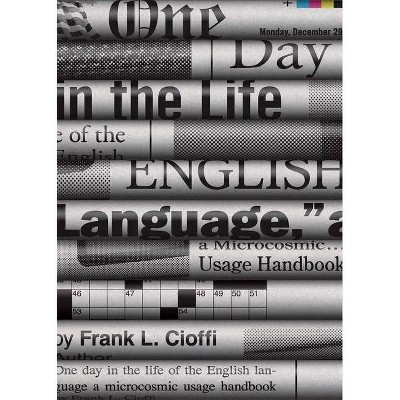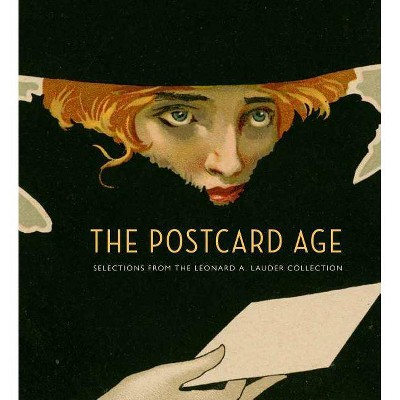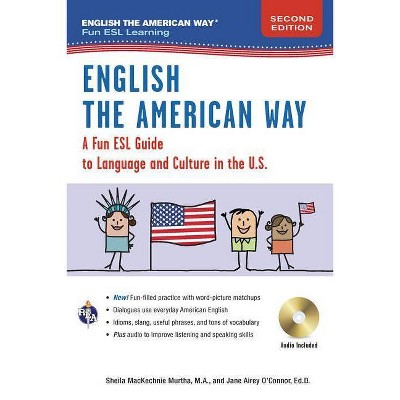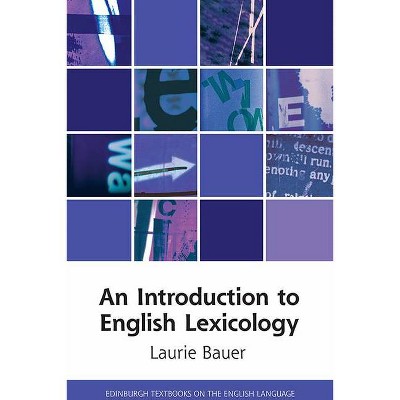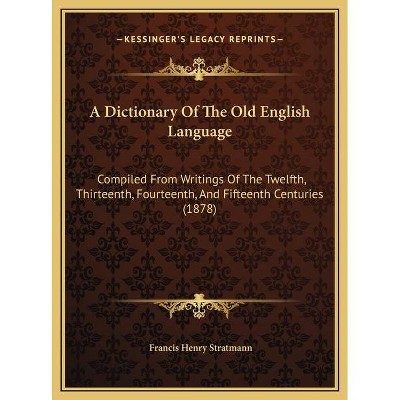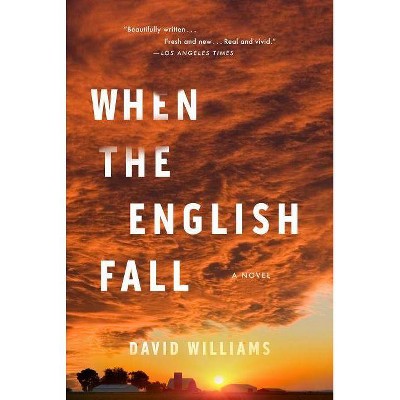The Fall of Language in the Age of English - by Minae Mizumura (Hardcover)
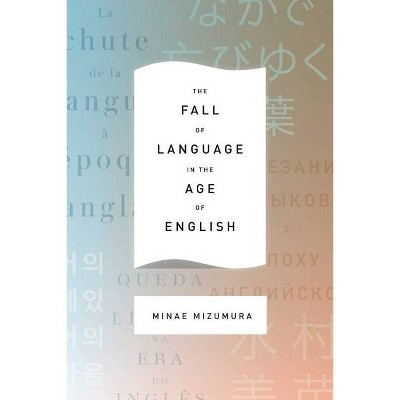
Similar Products
Products of same category from the store
AllProduct info
<p/><br></br><p><b> About the Book </b></p></br></br>An award-winning novelist composes a multifaceted critique of the politics of personal expression.<p/><br></br><p><b> Book Synopsis </b></p></br></br>Winner of the Kobayashi Hideo Award, <i>The Fall of Language in the Age of English</i> lays bare the struggle to retain the brilliance of one's own language in this period of English-language dominance. Born in Tokyo but raised and educated in the United States, Minae Mizumura acknowledges the value of a universal language in the pursuit of knowledge yet also embraces the different ways of understanding offered by multiple tongues. She warns against losing this precious diversity. <p/>Universal languages have always played a pivotal role in advancing human societies, Mizumura shows, but in the globalized world of the Internet, English is fast becoming the sole common language of humanity. The process is unstoppable, and striving for total language equality is delusional--and yet, particular kinds of knowledge can be gained only through writings in specific languages. <p/>Mizumura calls these writings "texts" and their ultimate form "literature." Only through literature and, more fundamentally, through the diverse languages that give birth to a variety of literatures, can we nurture and enrich humanity. Incorporating her own experiences as a writer and a lover of language and embedding a parallel history of Japanese, Mizumura offers an intimate look at the phenomena of individual and national expression.<p/><br></br><p><b> Review Quotes </b></p></br></br><br><i>The Fall of Language in the Age of English</i> deserves wider coverage (and debate).--Flavorwire<br><br>A stirring call to consciousness about the role of language. . . . For English speakers, the book presents an important opportunity to walk in someone else's shoes.--Publishers Weekly<br><br>In <i>The Fall of Language</i>, however, Mizumura wryly notes that the plot of <i>The Golden Demon</i> was later discovered to be a rehash of an American dime novel. From the beginning, she suggests, modern Japanese fiction was born out of an engagement with English literature--an engagement that her own work continues. Even readers who have no particular interest in that literary history will find in Mizumura a fascinating example of how a writer can be at the same time imaginatively cosmopolitan and linguistically rooted.--Adam Kirsch "New York Review of Books "<br><br>Mizumura traces how the myth of the 'national language, ' a pure upwelling of political character, coincided with the flowering of the nation-state--and, even more fascinatingly, of the novel itself. . . . 'Language' may be in the book's title, but Mizumura has really crafted a conservationist's plea for <i>literature</i>.--Katy Waldman "Slate "<br><br>Persuasive, elegantly written. . . . [<i>The Fall of Language in the Age of English</i>] is highly deserving of attention, from English and Japanese speakers alike, as well as from anyone concerned about literature's past and future.--Rebecca Hussey "The Quarterly Conversation "<br><br>Rigorous and wide-ranging. . . . This book is a cracker.--Peter Gordon "Asian Review of Books "<br><br>The care with which Mizumura has crafted this book . . . [makes] the reading of it a pleasure, allowing for wit and personality to shine.--Sho Spaeth "Full Stop "<br><br>There is incredibly smart stuff in here. . . . Mizumura's ability to weave together so many strands of history (lingual, academic, economic, geopolitical) paints a clear picture of the evolution of Japanese literature, with commentary on the rest of the globe being a pleasant byproduct.--Graham Oliver "The Rumpus "<br><br>This powerful, insightful work analyzes the predicament of world languages and literatures in an age when English has become the universal language of science and the default language of the internet. . . . Rich, profound meditation on language and literature.--Claremont Review of Books<br><br>An eye-opening call to consciousness about the role of language.--Publishers Weekly Tip Sheet<br><br>Translators Juliet Winter Carpenter and Mari Yoshihara have done a superb job of rendering [the text] into clear, readable English.--Japanese Studies<br><br>The best book I had ever read about translation and international literature--and the best illustration I had ever seen of how English corrodes even the great literary languages, including French and Japanese.--Benjamin Moser "Literary Hub "<br><br>[A] highly charged book.--Eric Banks "The Chronicle Of Higher Education "<br><br>[Mizumura's] book is a 'text to read' in the 'universal library, ' to use her terms.--Selma K. Sonntag "Journal of Asian Studies "<br><br>A call to arms for everyone: for all non-native English speakers to embrace and champion literature in their own languages, and for English speakers to be that little less arrogant in their use of their mother tongue, which just happens to have become the world's universal language.--Sophie Knight "The Japan Times "<br><br>A dazzling rumination on the decline of local languages, most particularly Japanese, in a world overshadowed by English. Moving effortlessly between theory and personal reflection, Minae Mizumura's lament--linguistic and social in equal measure--is broadly informed, closely reasoned, and--in a manner that recalls her beloved Jane Austen--at once earnest and full of mischief.--John Nathan, translator of <i>Light and Dark: A Novel</i> by Natsume Soseki<br><br>In <i>The Fall Of Language in the Age of English</i>, Minae Mizumura shows, better than anyone ever has, how English is wrecking other languages -- reducing even great literary languages, including Japanese and French, to local dialects -- and makes a vigorous case for the superiority of the written over the spoken word.--Benjamin Moser "New York Times Book Review "<br><br>Mizumura has crafted a book that stimulates thought, excites passions, and encourages debate. For these alone, it is well worth a read.--Erik R. Lofgren "World Literature Today "<br><br>Skillfully translated.--Harou Shirane "Public Books "<br><p/><br></br><p><b> About the Author </b></p></br></br>Minae Mizumura was born in Tokyo, moved to New York at the age of twelve, and studied French literature at Yale University. Acclaimed for her audacious experimentation and skillful storytelling, Mizumura has won major literary awards for all four of her novels--one of which, <i>A True Novel</i>, was recently published in English. She lives in Tokyo. <p/>Mari Yoshihara is professor of American studies at the University of Hawai'i at Manoa. She is the author of <i>Embracing the East: White Women and American Orientalism and Musicians from a Different Shore: Asians and Asian Americans in Classical Music</i>. <p/>Juliet Winters Carpenter studied Japanese literature at the University of Michigan and the Inter-University Center for Japanese Language Studies in Tokyo. In 1980, Carpenter's translation of Abe Kobo's novel <i>Secret Rendezvous</i> (<i>Mikkai</i>) won the Japan-United States Friendship Commission Prize for the Translation of Japanese Literature.
Price History
Cheapest price in the interval: 40 on November 8, 2021
Most expensive price in the interval: 40 on December 20, 2021
Price Archive shows prices from various stores, lets you see history and find the cheapest. There is no actual sale on the website. For all support, inquiry and suggestion messagescommunication@pricearchive.us
